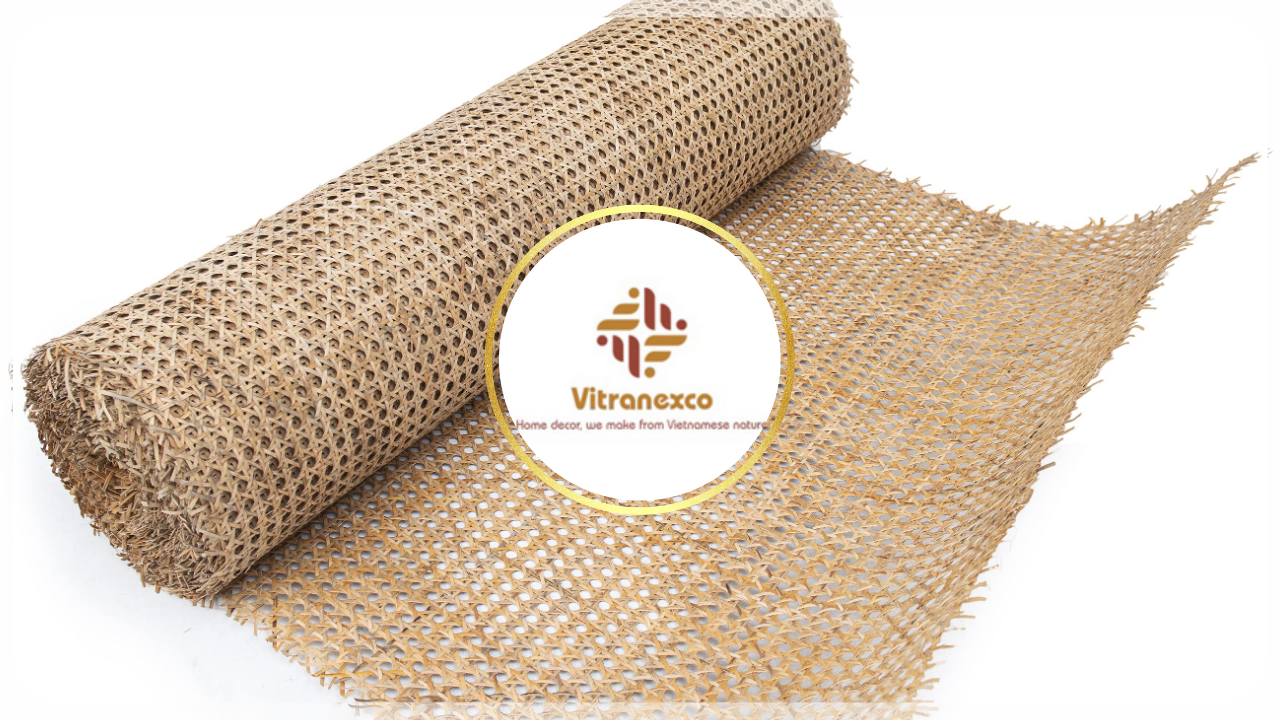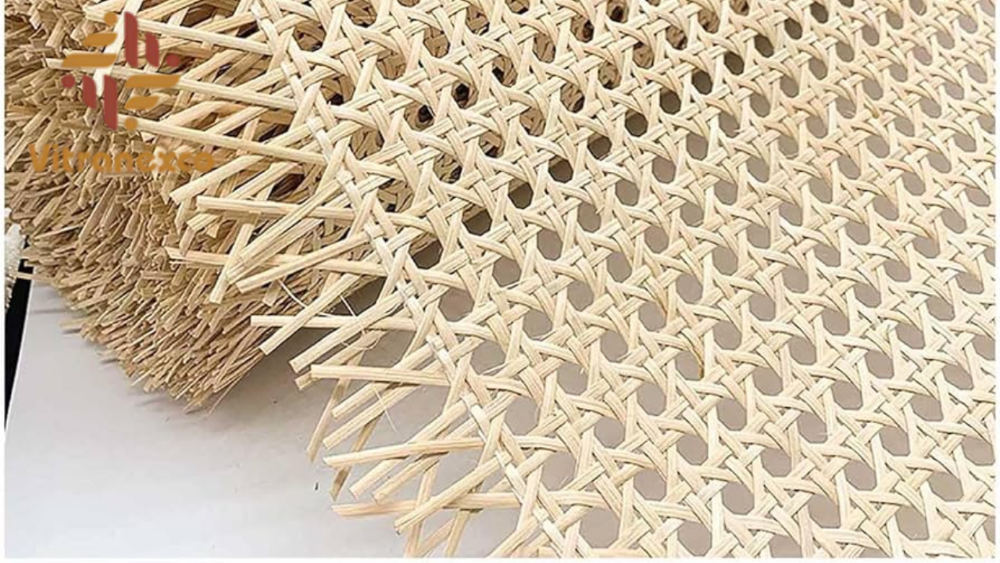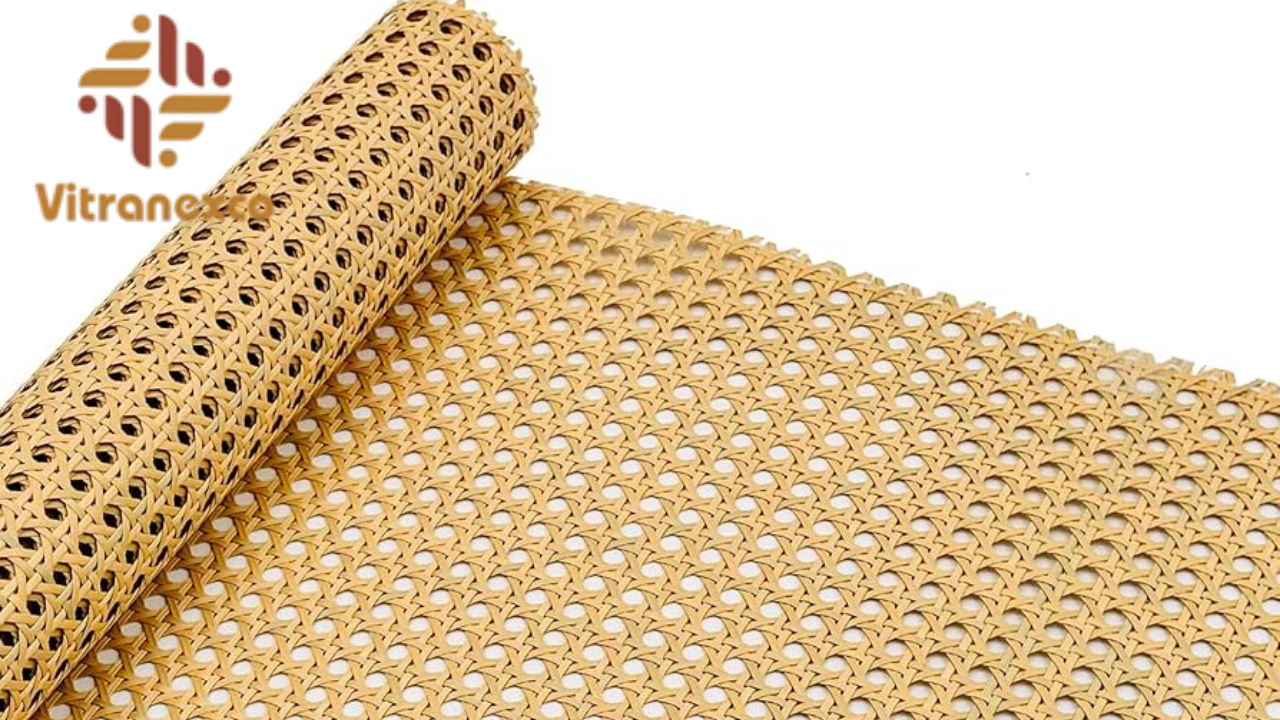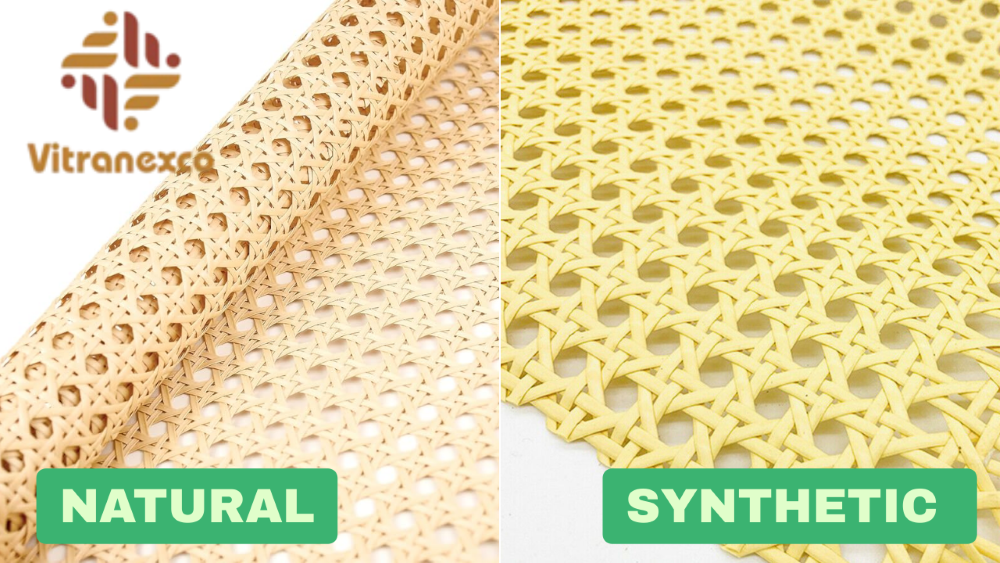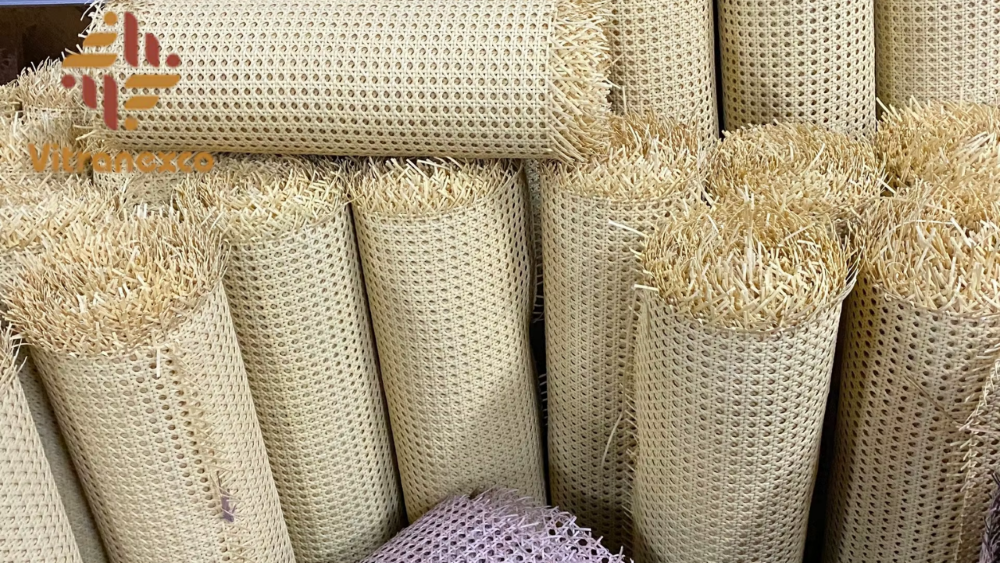What is a rattan webbing roll?
1. Natural rattan webbing
Natural cane webbing is made from real rattan, typically from the outer bark of the plant, and is woven into open or closed mesh patterns. These rolls are prized for their organic feel, eco-friendliness, and handcrafted appearance. A
natural and synthetic rattan webbing roll may look similar from a distance, but natural rattan offers unmatched warmth and authenticity.
It’s commonly used in furniture like
chair seats,
cabinet inserts, and
headboards, especially in rustic, vintage, or Scandinavian styles.
2. Synthetic rattan webbing
Synthetic cane webbing, on the other hand, is made from plastic-based materials such as PE, PVC, or vinyl. It replicates the look of natural rattan but provides additional benefits like
water resistance,
UV protection, and
low maintenance. This makes the
synthetic version of the rattan webbing roll ideal for outdoor or humid areas such as kitchens, bathrooms, or balconies.
When comparing a
natural and synthetic rattan webbing roll, it's important to consider both aesthetics and performance.
Key differences between natural and synthetic rattan webbing
Here’s a direct comparison to highlight the core differences between the two types of
rattan webbing rolls:
| Criteria |
Natural rattan webbing |
Synthetic rattan webbing |
| Material |
Real rattan from plants |
PE/PVC or other synthetic materials |
| Aesthetic |
Warm, rustic, handcrafted look |
Sleek, uniform, modern appearance |
| Durability |
Strong indoors, weak outdoors |
Durable in all weather conditions |
| Water resistance |
Not water-resistant |
Waterproof and UV-resistant |
| Maintenance |
Requires care |
Easy to maintain |
| Applications |
Indoor furniture and decor |
Outdoor use and high-humidity areas |
Each
natural and synthetic rattan webbing roll serves different needs, so your choice should align with how and where you plan to use it.
Common applications of each type
Natural rattan webbing – classic and earthy
Rattan webbing is widely used in various furniture enhancements such as
chair seat cane webbing,
cabinet door panels,
cupboard inserts,
rattan drawer accents, and
decorative headboards—not only adding a natural, handcrafted aesthetic but also improving ventilation and lightness, making it ideal for both modern and vintage-inspired interiors.
Natural rattan is ideal for lovers of traditional craftsmanship and warm, organic design. It’s especially effective in
DIY furniture upgrades that aim to reflect simplicity and nature.
Synthetic rattan webbing – durable and modern
Rattan webbing is also popularly used in
wall panels and room dividers,
outdoor furniture,
bathroom cabinetry,
wardrobes,
drawer fronts, and various
flexible mesh applications—bringing a warm, organic texture while allowing for airflow, light diffusion, and a sense of spaciousness in both indoor and outdoor settings.
For functional spaces and heavy-use furniture, a
synthetic rattan webbing roll provides a long-lasting and low-maintenance alternative without sacrificing style.
Pros and cons of natural and synthetic rattan webbing roll
Natural rattan webbing
Pros: Natural rattan webbing is an
eco-friendly material made from natural rattan vines, making it a sustainable and biodegradable option that is ideal for environmentally conscious consumers; it features
warm, natural tones and a woven texture that bring warmth and character to any space; and because it is often handmade, it reflects
heritage techniques and skilled artistry, adding a unique charm to furniture pieces.
Cons: Natural rattan is
sensitive to moisture and mold, as it can warp, rot, or develop mold when exposed to high humidity or water, making it less suitable for damp areas; additionally, it
requires gentle cleaning and must be maintained carefully in well-ventilated, dry environments to preserve its quality and durability.
Synthetic rattan webbing
Pros: Synthetic rattan webbing offers several advantages, including resistance to
water and UV rays, making it highly durable in various weather conditions; it is also
easy to clean, and its
versatility allows for both indoor and outdoor use without compromising appearance or performance.
Cons: However, synthetic rattan webbing
lacks the authenticity and natural charm of real rattan, and since it is made from plastic-based materials, it is
not biodegradable, making it a less eco-friendly option.
Conclusion: Which one should you choose?
Both types of rattan webbing rolls serve different design and practical purposes, as a comparison between natural and synthetic rattan reveals that natural rattan is perfect for artistic, vintage-inspired interiors and appeals to environmentally conscious designers, while synthetic rattan is ideal for those prioritizing outdoor durability, moisture resistance, and easy care—and no matter which you choose, both options can effectively upgrade furniture and living spaces when tailored to your lifestyle.
FAQs
1. Is synthetic rattan suitable for outdoor furniture?
Yes, it is specifically designed to be UV-resistant and waterproof.
2. Can I install a rattan webbing roll myself?
Absolutely. Most cane mesh rolls are flexible and can be installed using glue, staples, or tacks.
3. Which is more cost-effective: buying by the meter or by the roll?
If you’re working on a large project, buying a full natural and synthetic rattan webbing roll is more economical than per-meter pricing.
=>LEARN MORE: How to make rattan furniture from natural materials
CONTACT
VITRANEXCO LIMITED COMPANY - The leading supplier of raw materials: rattan, bamboo,... in Vietnam
